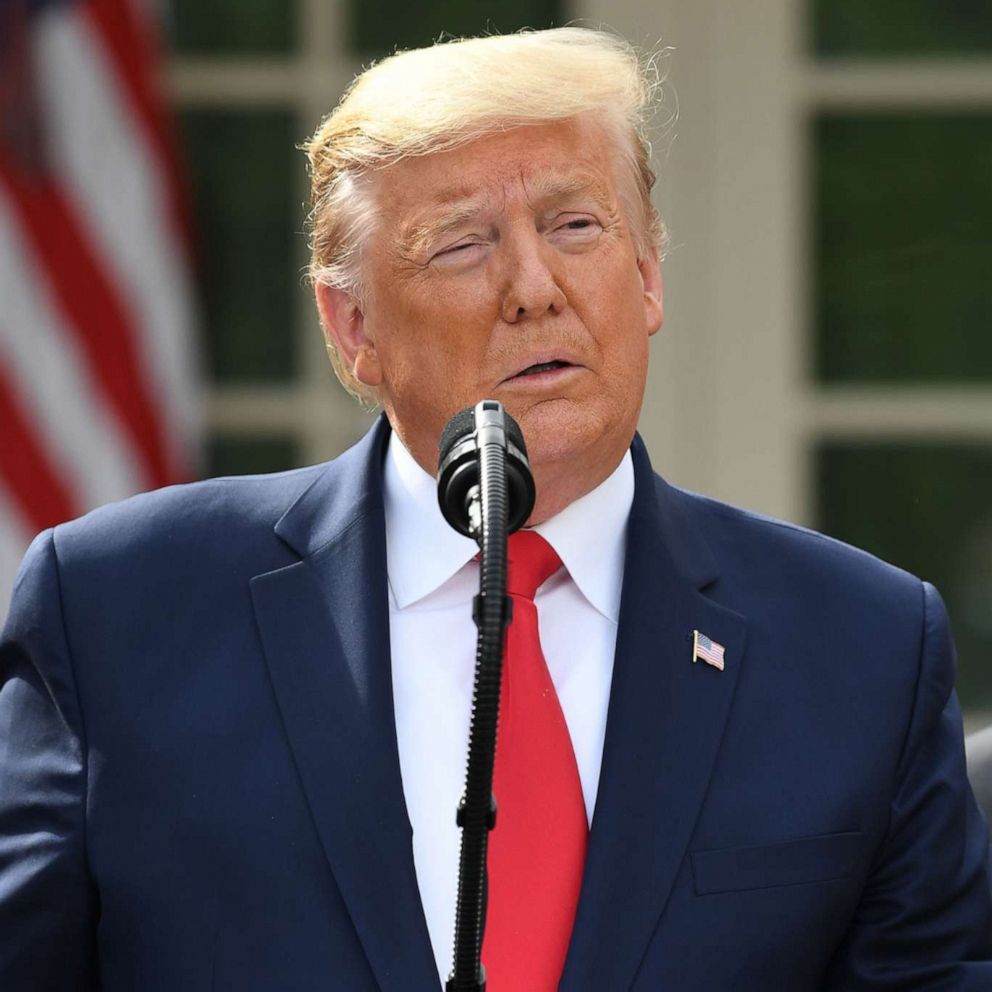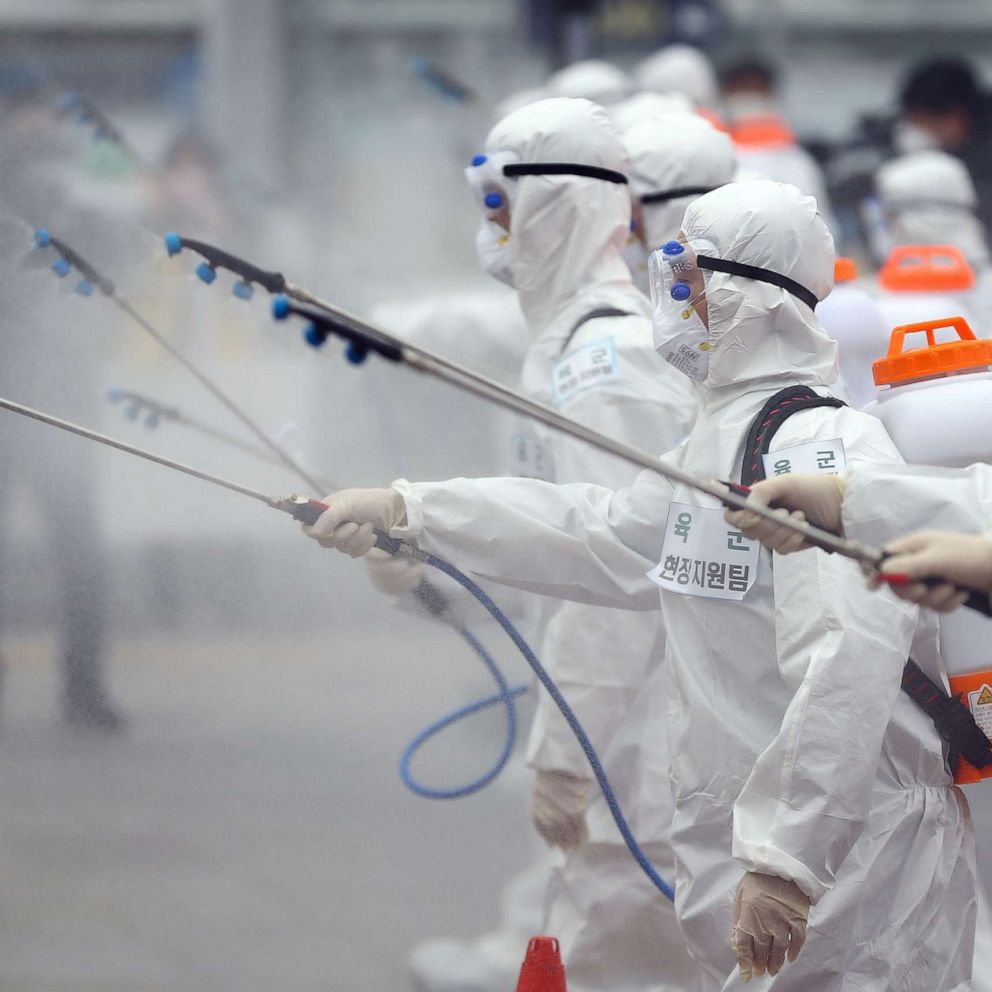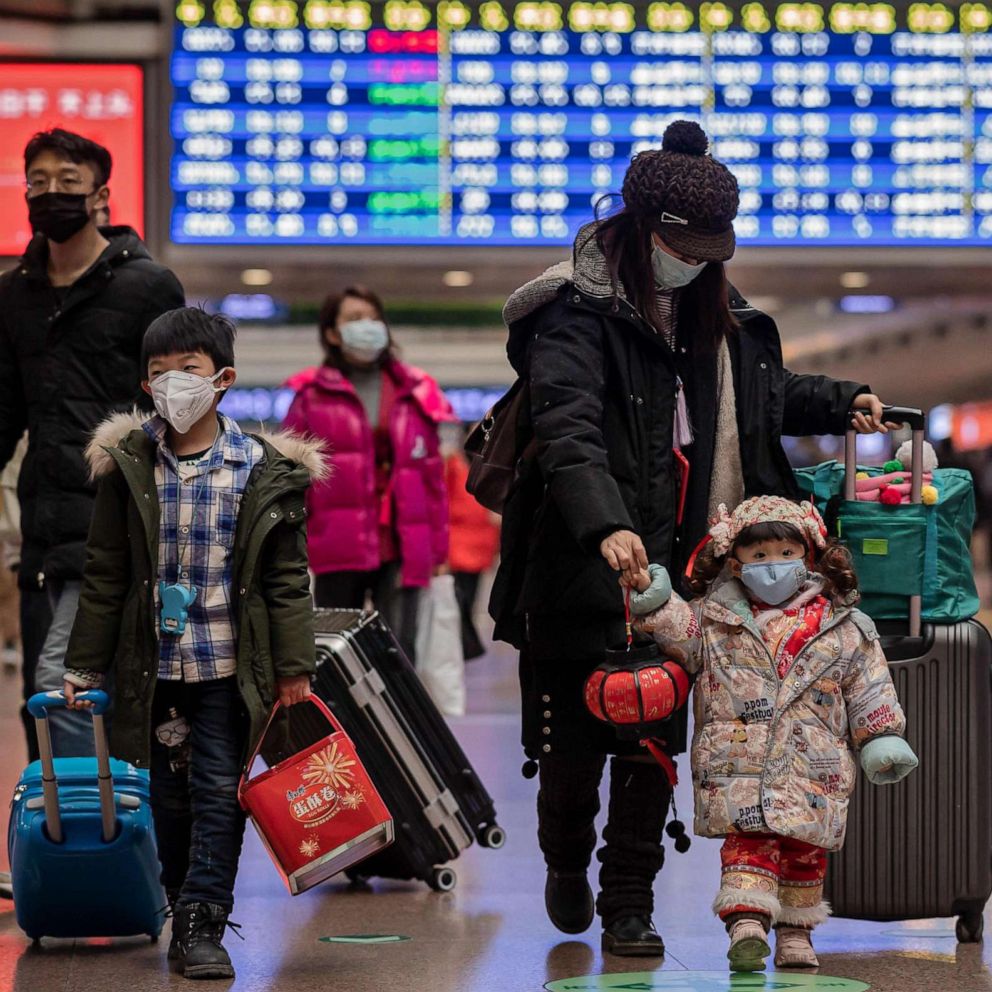Fact checking Trump's claim about suicides if the economic shutdown continues
He predicts "tremendous death" of people depressed over losing jobs.
As some in President Donald Trump's inner circle push for loosening social distancing guidelines amid economic fallout from the novel coronavirus outbreak, he has predicted "tremendous death" and "suicide by the thousands" if the country isn't "opened for business" in a matter of weeks.
While public health officials warn that dropping social guidelines to boost the economy could quickly overload hospital systems, costing more money and more lives, the president has claimed several times this week that the number of suicides specifically would "definitely" be greater than the death toll from the virus itself as he pointed to people returning to work as a remedy.
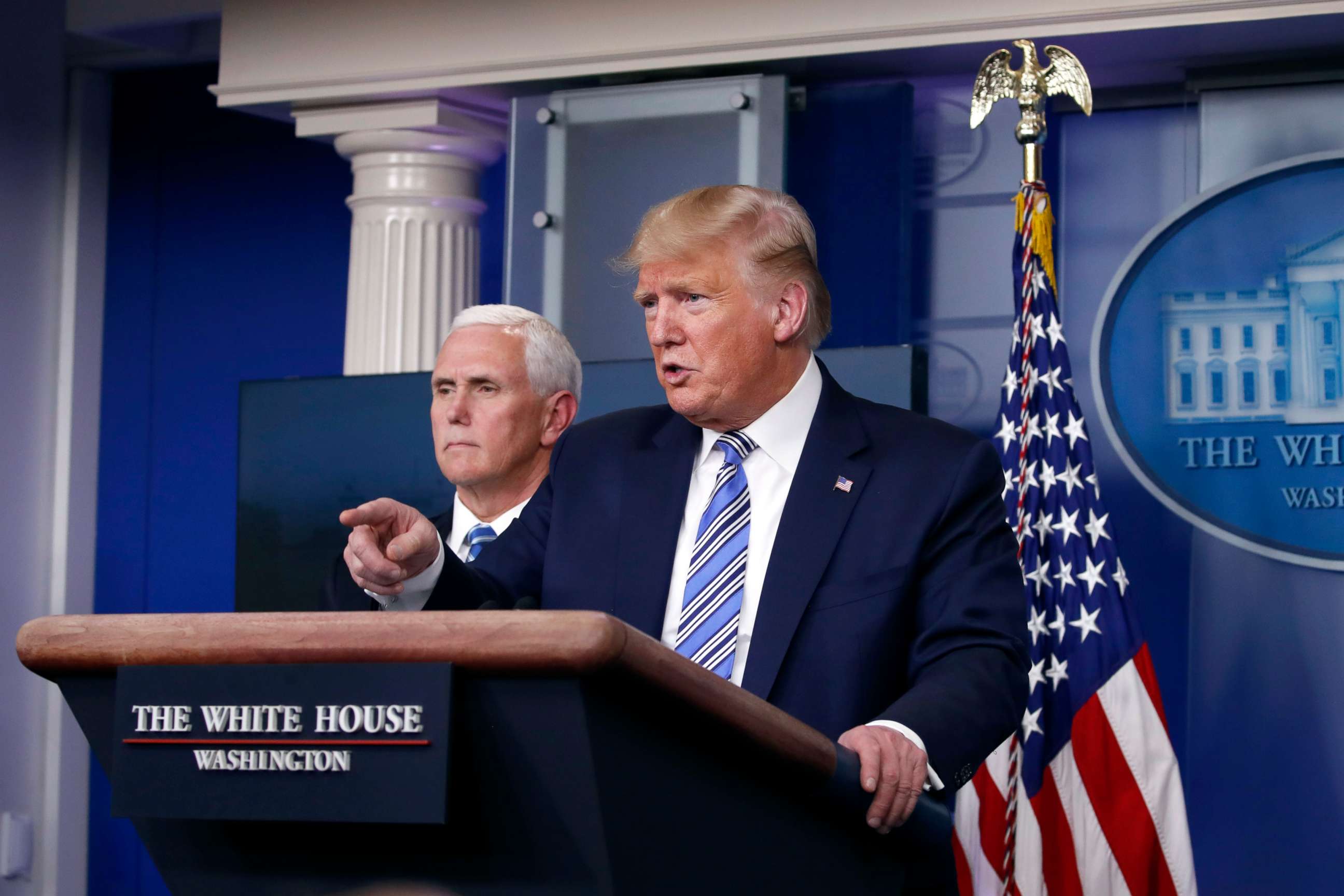
"You're going to lose more people by putting a country into a massive recession or depression." Trump said Tuesday in a Fox News town hall. "You're going to lose people. You're going to have suicides by the thousands."
One night before, at a coronavirus task force briefing, the president said, "I'm talking about where people suffer massive depression, where people commit suicide, where tremendous death happens… I mean, definitely would be in far greater numbers than the numbers that we're talking about with regard to the virus."
A scientific report released March 16 by an epidemic modeling group at Imperial College London, found that without action by the government and individuals to slow the spread of COVID-19, as many as 2.2 million people in the U.S. could die -- not accounting for the negative effects of health care systems being overwhelmed.
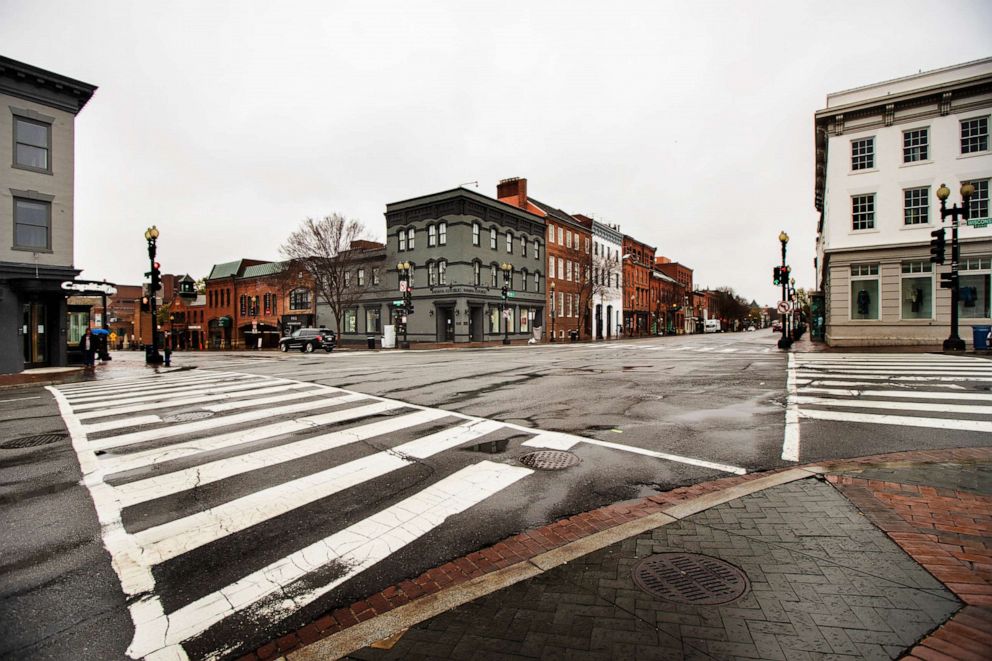
There's no way to predict the exact impact of an unprecedented pandemic, but experts also say that there's no evidence to suggest that the suicide rate will rise dramatically because people are stressed from losing their jobs or that the death toll would surpass potential coronavirus deaths.
According to the Centers for Disease Control and Prevention, suicide mortalities have gone up every year since 1999, but it's still "selective" for the president to latch onto that, says Richard Dunn, associate professor of Agricultural and Resource Economics at University of Connecticut who has studied the connection between markets and depression.
"The general fact that President Trump cited is, in fact, true that when economies contract suicides do go up," Dunn said, acknowledging how the financial crisis of the early 2000s triggered more suicides, "but that is not the only cause of death that responds to economic downturn."
"If you were to look across all the current causes of death in a recession, you would see that the number of deaths actually declines. Heart deaths from heart disease fall. Deaths from motor vehicle accidents crashes fall," Dunn added. "One of the few activities that we have left to us in many parts of the country is to go out for a walk, so physical activity tends to go up."
"So we actually see overall that there are fewer deaths in economic downturn -- but suicide is the one major cause of death that does not follow that pattern," Dunn said.
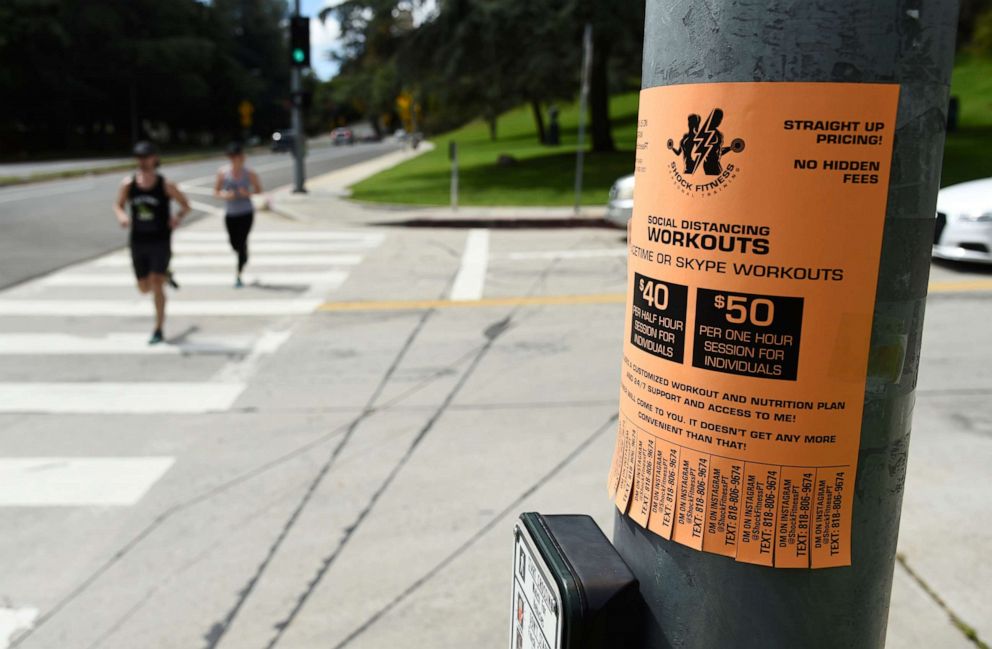
While the global reported death toll for COVID-19 is nearly 20,000 people at this time, the CDC reports that 47,173 Americans died by suicide in 2017 alone and the number is on track to grow in coming years -- but experts still caution pairing the mortality rate to that of the current pandemic.
Timothy Classen, an associate professor of economics and associate dean at the Quinlan School of Business at Loyola University, notes that in the years since the Great Recession, unemployment numbers have recovered from roughly 10% to 4% -- yet suicides mortalities have continued to increase.
"That contradicts the notion that as unemployment increases, that's going to increase suicide rates," Classen said.
Classen also notes that while "of course" one individual's suicide has consequences to others, it does not transmit itself like a virus, adding to the difficulty in predicting either death toll, albeit comparing them through sound science.
The direct payments to individuals and extended unemployment benefits in the $2 trillion economic relief package Congress is close to approving, which also includes suspension of loan payments, could reduce a lot of the financial stress.

When it comes to next steps, former Trump administration homeland security adviser -- and now ABC News Contributor -- Tom Bossert cautions that allowing the disease to spread without making an effort to mitigate would still take a "devastating" toll on the country.
"I think everybody shares his [President Trump's] frustration and his hope -- but what he needs to do is avoid second waves and reinfections," Bossert said. "At this stage we've paid a very heavy cost in our economy and in our lives. To lose the benefit of it at this point by not sticking to our guns would be a really devastating decision."
The National Suicide Prevention Lifeline is 1-800-273-8255.
What to know about coronavirus:
- How it started and how to protect yourself: coronavirus explained
- What to do if you have symptoms: coronavirus symptoms
- Tracking the spread in the US and Worldwide: coronavirus map
